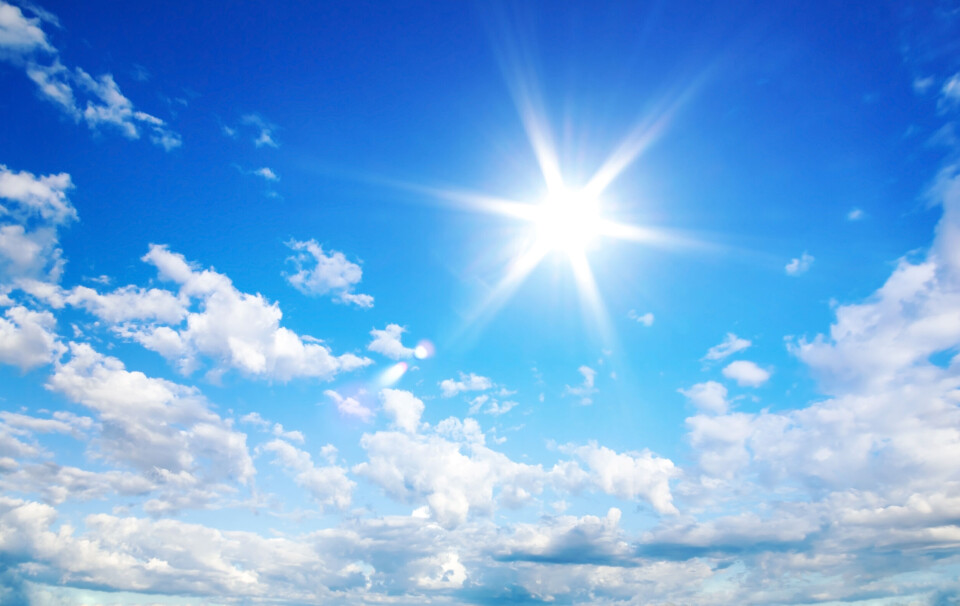-
French ski resorts report excellent Christmas despite less snow than last year
Bookings are up and non-snow related activities are also on the rise
-
American celebrity jeweller robbed of ‘more than €1m’ at French Riviera Airbnb
Jewellery and cash stolen from rental property where Chris Aire was staying
-
New 2026 civic tests in France: 50 example questions in French
Candidates must score 80% on tests to pass
This October set to be warmest on record in France
Hot temperatures are expected to last until November, forecasters have said. This weather is unusual for its duration, and has also meant that mosquitoes are still out in force

France is set to have the hottest October on record as forecasters are predicting a continuous spell of warm weather throughout the remainder of the week. This is likely to break records, and subsequently cause mosquitoes to remain present for some time.
La Chaîne Météo has said: “[October] will be the warmest month ever recorded in France since 1945.”
Pascal Scaviner, head of forecasting, told Le Figaro: “This strong anomaly situation will persist until the end of the month, with an average rise of 3.7 degrees higher compared to seasonal norms.”
The previous records date from 2006 (2.37C higher) and 2001 (2.69C higher).
A peak in temperature is expected tomorrow (Thursday, October 27), with average temperatures of 28-30C in the southwest. It comes after similar temperatures were seen last week, with 32.5C recorded in Figari in Corsica – a temperature not seen since 2006.
Mr Scaviner added that there had been an “increase since October 16, at the start of the month, temperatures rose by more than 2.56C compared to normal, but since October 16, we have seen rises of five extra degrees.”
From Tuesday, Aix-en-Provence recorded its monthly record for hot days (16 days above 25C this month, compared to the previous record of 13 in October 2004), as did Perpignan (14 days, compared to 13 in 2014, and 1942).
In Toulouse, the temperature has not dropped below 20C since the start of October.
Overall, October 2022 has not seen many isolated ‘record temperatures’ (compared to the years 2001, 2011, and 2017), but it is the duration of the warm spell that has been more unusual.
These high temperatures are expected to last until the end of October, before a drop comes in the first week of November.
The high temperatures also mean that this year will be one of the hottest on record overall for France.
Christine Berne, meteorologist at Météo France, said: “This year has clearly been a whirlwind. With the exception of a short period in September, we have been witnessing particularly hot months non-stop since April.
“We’re getting the impression that the atmosphere is finding it increasingly difficult to cool down.”
The warm weather is being caused by a cyclical phenomenon of a surge of warm air from Africa, coupled with the effects of climate change, she said.
“Without global warming [caused by humans] we would not have such high temperatures,” Ms Berne said. “With climate change contributing to more frequent and more intense extreme phenomena.”
Mr Scaviner, from La Chaîne Météo, said that the temperatures would also mean that recovering from the current drought conditions is less likely.
He said: “The probability of compensating for the strong deficit in precipitation since the beginning of the year is low, and therefore the surface drought will become even more pronounced.”
Many more mosquitoes
Consistently warm temperatures have also meant that insects and mosquitoes have been out in much higher numbers than normal.
In ‘normal’ years, mosquito numbers typically drop significantly in September.
"When temperatures are still high, and even abnormally high as they have been in this month of October, they are favourable to the development of mosquitoes, “ Grégory L'Ambert, medical entomologist at the Entente interdépartementale pour la démoustication du littoral méditerranéen (EID-Méditerranée), told La Dépêche.
Tiger mosquitoes and culex pipiens mosquitoes are both affected.
“That’s the one that swirls around our ears when we’re trying to sleep,” said Mr L’Ambert. “It’s less aggressive than the tiger mosquito, but no less annoying.
“The two species have not yet received the signal that the season is over. So they will continue to develop, especially tiger mosquitoes, because it’s warm, and what’s more, it has rained. This combination is really very favourable [to mosquitoes].
Read more: Mosquitoes make their return in France: Tips on keeping them away
Mr L’Ambert said that the effect was “very probably” due to climate change.
He said that the tiger mosquito, which began to be seen regularly in the south in around 2013, has “completely changed the game…because this aggressive and invasive species has come into gardens, and near homes, and very often bites humans.”
It can also spread illnesses such as dengue, zika, and chikungunya “even though these illnesses are not endemic to our country”, said Mr L’Ambert.
Related articles
France warns of increased risk of dengue fever from tiger mosquitoes
Tiger mosquitoes: new case of native dengue fever confirmed in France
























